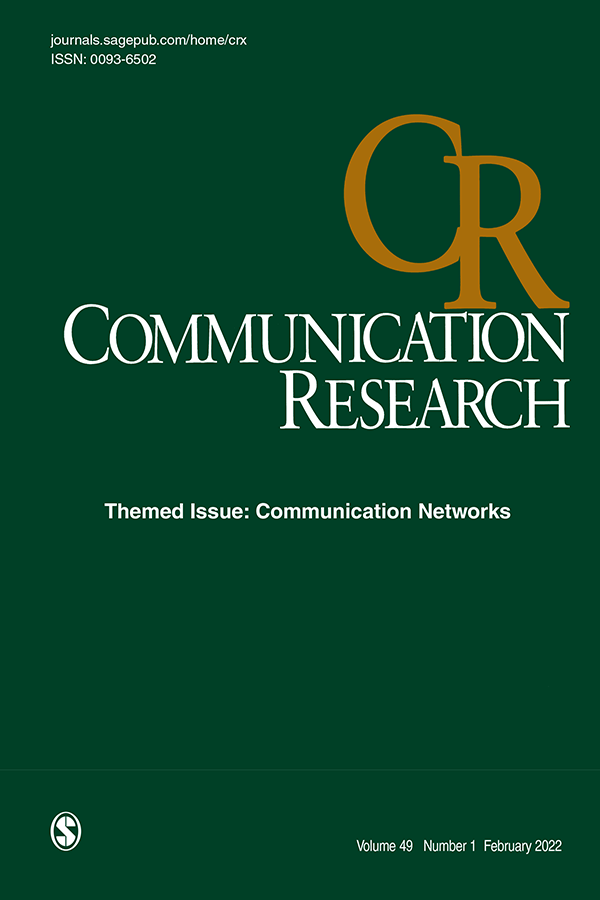“I’ll Change My Beliefs When I See It”: Video Fact Checks Outperform Text Fact Checks in Correcting Misperceptions Among Those Holding False or Uncertain Pre-Existing Beliefs
IF 3.2
1区 文学
Q1 COMMUNICATION
引用次数: 0
Abstract
Widespread concerns about the pervasiveness of misinformation have propelled one antidote to the center of scholarly attention: the journalistic fact check. Yet, fact checks often do not work as intended. While most fact checks are text only, a compelling theoretical argument can be made for using a video format instead. In this pre-registered experiment conducted in Germany ( N = 1,093), we investigated whether using video versus text can improve fact checks’ ability to correct misperceptions about transgender women, cannabis consumption, migration, and climate change. Video fact checks outperformed text fact checks, with those holding false or uncertain pre-existing beliefs benefiting the most. We contribute to motivated reasoning theory the idea that visual information can override directional reasoning better than textual information, and that processing fluency is the mechanism by which this occurs. Our findings paint an optimistic picture for the ability of fact checks to debunk misinformation, especially for those holding misperceptions."当我看到它时,我会改变我的信仰":视频事实核查在纠正那些持有错误或不确定既有信仰的人的错误观念方面优于文字事实核查
人们对错误信息泛滥的广泛关注促使一种解药成为学术界关注的焦点:新闻事实核查。然而,事实核查往往事与愿违。虽然大多数事实核查都是纯文字的,但从理论上讲,使用视频形式也是有说服力的。在德国进行的这项预先登记的实验中(N = 1,093),我们研究了使用视频与文字相比,是否能提高事实核查纠正对变性妇女、大麻消费、移民和气候变化的误解的能力。视频事实核查的效果优于文字事实核查,那些持有错误或不确定既有观念的人受益最大。我们为动机推理理论提供了一种观点,即视觉信息能比文字信息更好地推翻方向性推理,而处理流畅性则是实现这一点的机制。我们的研究结果为事实核查揭穿错误信息的能力描绘了一幅乐观的图景,尤其是对那些持有错误认知的人而言。
本文章由计算机程序翻译,如有差异,请以英文原文为准。
求助全文
约1分钟内获得全文
求助全文
来源期刊

Communication Research
COMMUNICATION-
CiteScore
17.10
自引率
0.00%
发文量
20
期刊介绍:
Empirical research in communication began in the 20th century, and there are more researchers pursuing answers to communication questions today than at any other time. The editorial goal of Communication Research is to offer a special opportunity for reflection and change in the new millennium. To qualify for publication, research should, first, be explicitly tied to some form of communication; second, be theoretically driven with results that inform theory; third, use the most rigorous empirical methods; and fourth, be directly linked to the most important problems and issues facing humankind. Critieria do not privilege any particular context; indeed, we believe that the key problems facing humankind occur in close relationships, groups, organiations, and cultures.
 求助内容:
求助内容: 应助结果提醒方式:
应助结果提醒方式:


